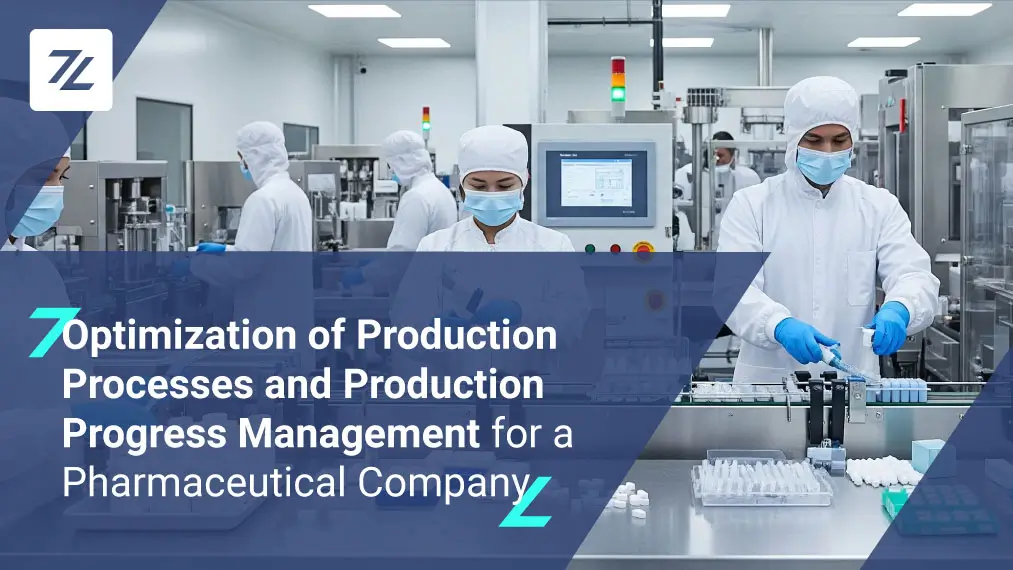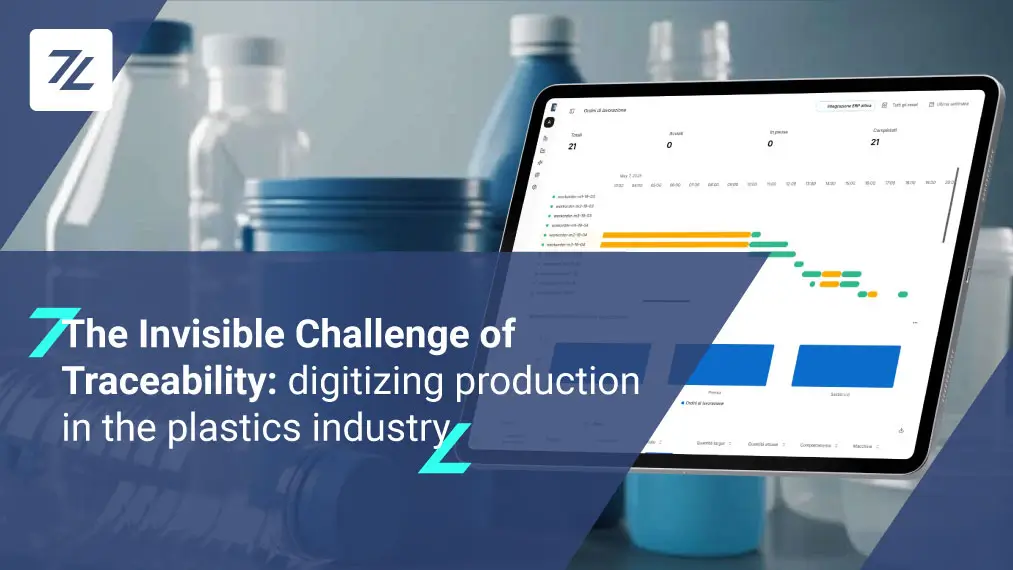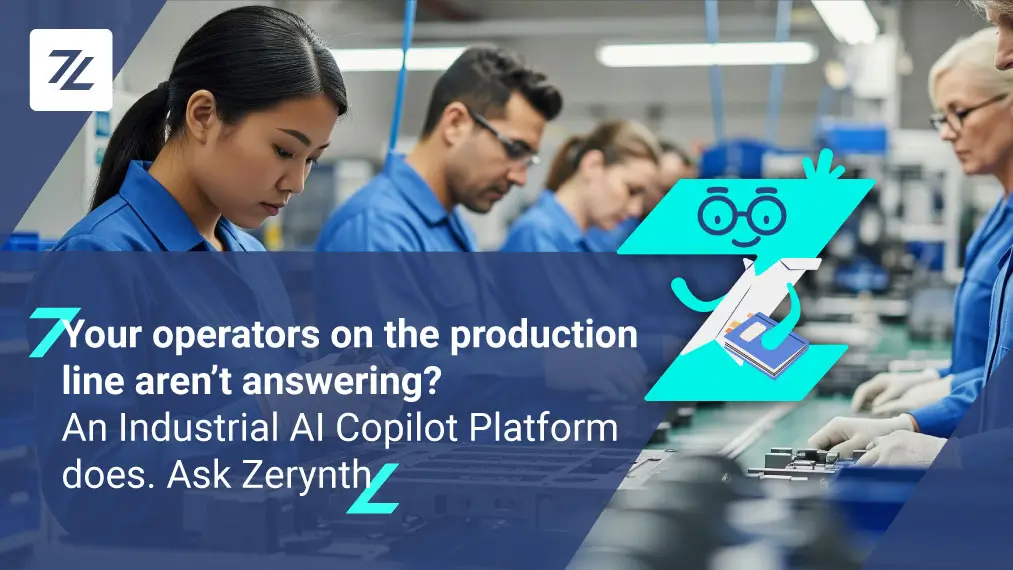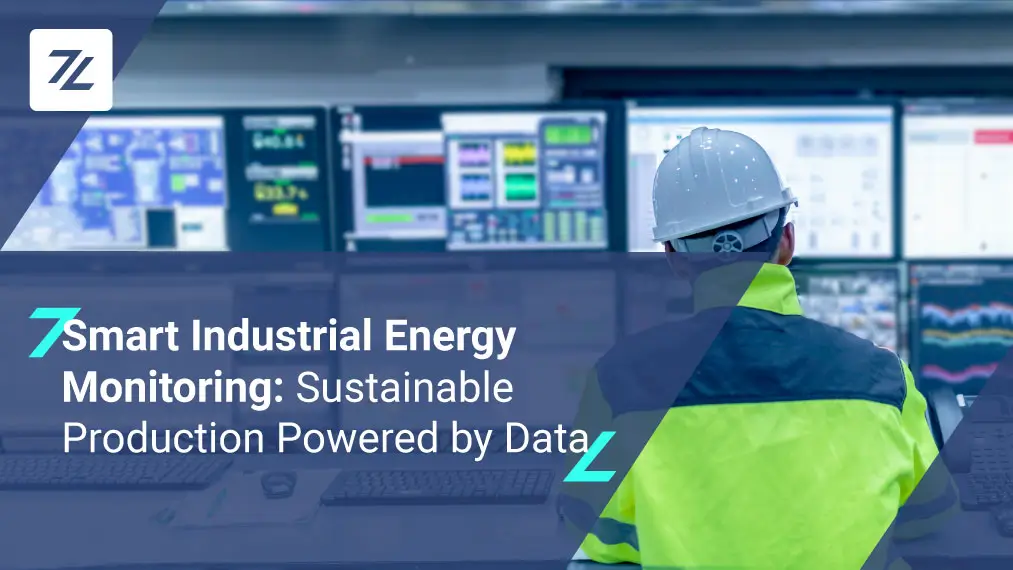Smart Manufacturing is the new frontier of the manufacturing sector, but it still presents challenges that can be overcomed with the help of industrial AI systems.
The manufacturing industry is going through a phase of profound transformation. The advent of smart manufacturing promises to revolutionise the industry, bringing with it enormous potential for efficiency, productivity and innovation.
As is often the case with big changes, however, this revolution is not without its challenges. In this article, we will explore the main difficulties companies face in implementing the smart factory model and how industrial AI can be the key to overcoming them. Read on to learn more!
Smart Manufacturing main challenges
Digitising production processes is crucial for manufacturing companies that want to remain competitive in the market. But what are the difficulties that industries may face in transforming into “smart factories“?
First, the digitization of industries and the shift to smart manufacturing require significant investments in cutting-edge digital technologies. These costs can be a major hurdle, even for companies with strong balance sheets. Another challenge concerns the management of vast amounts of data, which are the beating heart of Industry 4.0 and 5.0.
The most advanced technologies, without proper data management, risk going unused or, worse, becoming a burden on the business instead of an asset.
The real challenge is not so much collecting data but knowing how to use it effectively. Companies are facing a veritable “Data Deluge,” a deluge of information that, if not managed properly, risks overwhelming them without bringing tangible benefits.
Data overload can have negative effects on operators’ decision-making abilities:
- Manual interpretation of large volumes of information from dashboards is a slow process and prone to bias.
- The risk of not recognizing critical insights increases considerably.
The time it takes to process and understand data can lead to delays in decision making, resulting in increased downtime and lost opportunities for optimization.
Finally, the transition to a digitally driven environment requires a highly skilled workforce capable of managing, maintaining and solving problems related to complex digital systems. This represents a significant challenge for many manufacturing companies.
The solution: Zerynth’s Industrial AI
Zerynth helps companies overcome these complex challenges with its Industrial IoT & AI Platform. The technologies used, such as Industrial IoT and Artificial Intelligence, possess the characteristics needed to meet the challenges of smart manufacturing: speed, power and flexibility.
Industrial AIs not only collect and analyse heterogeneous data, but can provide real-time insights, enabling proactive and dynamic management of production processes.
In fact, production processes are monitored in real time, so any problems can be quickly responded to or prevented from occurring. Thanks to Artificial Intelligence, data is managed effectively, which allows maintenance monitoring and makes the company’s processes more efficient.
Zero: Zerynth’s Industrial AI Copilot
In response to the challenges of smart manufacturing and the need for advanced industrial data management tools, Zerynth has developed Zero, an innovative industrial AI Copilot. Zero represents a qualitative leap forward in production process management, offering a range of features that directly address the needs of the modern smart factory.
Zero makes it possible to address the problem of data overload by reducing the cognitive load on operators: it autonomously analyses and interprets complex data, allowing staff to focus on more value-added activities.
To counter the complexity of production processes, Zero offers an intuitive interface with natural language commands, making advanced systems management accessible even to those without specialised IT skills. This helps bridge the skills gap often found in smart technology implementation.
Finally, Zero supports rapid and informed decisions by providing real-time information. This capability increases the company’s responsiveness, enabling it to identify and resolve anomalies and inefficiencies in a timely manner, thereby optimising production processes and reducing downtime.
What are Zer0’s Features?
- Real time monitoring: Zero retrieves factory data in real time and allows it to be explored in depth. This allows operators to always have their finger on the pulse of the production situation.
- In-depth performance analysis: Zero enables detailed analysis of production performance, identifying areas for improvement and opportunities for optimization.
- Assisted Configuration: Zero facilitates system configuration and integration of new machinery by providing targeted suggestions. This reduces setup time and minimises configuration errors.
- Automatic Report Generation: The system can generate customised reports automatically, providing stakeholders with crucial information without the need for manual processing.
- Alerts and Proactive Notifications: Zero allows alarms and proactive notifications to be set up, alerting operators to potential problems before they become critical.
Want to learn more about Zero and how it can be a trusted ally for the Manufacturing Industry? Read the white paper!
Share This Story, Choose Your Platform!
Follow Zerynth on
Latest Posts







